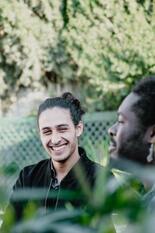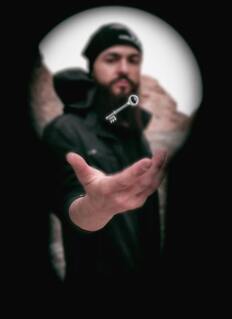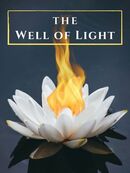November Newsletter
On Radical Relating
Climate change is more than just an environmental problem. It's about how we relate to each other, how we relate to nature, how we relate to the future, and how we relate to change itself.
Karen O’Brien
Climate change is more than just an environmental problem. It's about how we relate to each other, how we relate to nature, how we relate to the future, and how we relate to change itself.
Karen O’Brien

If we looked at all the current problems of the world, racism, war, climate change, political divide, enslavement, income inequality, hunger, habitat destruction… We find one common denominator; we don’t recognize or honor the innate intra-connection we have with each other and all of life! But, why? We could say it’s because of greed, hatred, colonialism, racism, political or religious ideology, ignorance, culture, and a myriad of other reasons. But that wouldn’t answer the question. We mammals are wired to connect, support, and nurture each other, it is in our DNA. What keeps us stuck in separation, isolation, and divisiveness?

Some years ago, I heard Thomas Hubl say, “We are swimming in a sea of trauma!” Suddenly the clouds parted, and I saw that this was the lynchpin at the heart of all the suffering in the world! Trauma produces separation, and we have perpetuated personal, familial, collective, and intergenerational trauma with each other for hundreds of thousands of years. It is not genetic, it is epigenetic, a product of a habitual turning away from that which connects us! Habits come from experiences of the past and shape the way we see, meet, and relate to the world. Many of them are products of an unintegrated and unexperienced past and live embedded in our personal and collective body, frozen in space and time.
Without presence, I will only be scared and frightened and
will allow fear to run my decisions.
Thomas Hubl
will allow fear to run my decisions.
Thomas Hubl

Imagine you were angry at or scared of something in your life! You would feel a tendency to turn away or to argue and show that you were right to have these feelings or experiences. But what if we turned in and towards, and felt the emotions and body sensations that accompanied our desire to run or fight? We call this presencing! Trauma survivors struggle to regulate this because they don’t feel safe! Whatever caused us to shut down our natural capacity to access a situation for safety shuts down in a trauma situation and we all carry trauma in our body, it’s in the air we breathe, the culture we live in, and even the language we speak. This rejection of experience is called absencing. So, the first step to rehabilitating our ability to fully feel our emotions and our felt sense of being in a body is to create safe spaces to practice turning towards that which separates, alienates, and marginalizes us.

Our nervous system has been trained, through experience, culture, and familial hand-me-downs to turn away from our unwanted emotions. But presencing is to turn towards and embrace the moment. When we do this, we cultivate mindfulness, merging our perception with our attention into a deepening awareness of what’s happening from moment to moment, especially when we feel triggered, have strong emotional reactions, or feel unsafe. This allows us to create an inner spaciousness in which we can look below the surface and befriend those parts of ourselves that have been suppressed, dissociated, and buried in our subconscious, but have been dictating our unconscious, unexamined and habitual avoidance behavior. And this awareness allows us to deepen our self-compassion connecting us more deeply with others and life itself, which in turn begins to weaken the belief in the separate self.
If the human mind has constructed a view of Itself as separate, it may be that the body has come to identify itself as the whole self rather than the self also including the whole of the systems in which that body exists.
Daniel J. Siegel, MD
Daniel J. Siegel, MD

Now, we begin to explore what I call Radical Relating. When we deepen our physical, emotional, and mental experiences through presencing, and recognize the mutuality of our experiences with others, the sense of a separate self begins to unravel. There is a common unity that emerges with a deepening felt sense of the so-called “other” and a larger sense of self emerges. This view of the separate self is hard to transcend as it is embedded in our culture, language, and social and economic systems. But think of that time when your mother, brother, or friend called just as you were thinking of them, or you just knew something was going to happen to someone and it did. These “nonlocal” experiences are evidence of a much larger connection with the world beyond the body!
Radical Relatedness, The Art of Intra-Being

To transcend the habit (an internalized structure of perception) of seeing the world as somehow outside ourselves may be the key to all the problems, suffering, and alienation that we experience in today’s world. The word radical means “affecting the fundamental nature of something”, which is exactly what we need currently in the evolution of our human species. Specifically, we need a fundamental shift in the way we relate to our sense of separate “self” and how we relate to the external and unintegrated parts of our world. In other words, we need to develop a practice of Radical Inclusion toward all we meet, see and experience. How do we develop a practice of Radical Relatedness? Where do we start?
We begin by shifting our focus from self-development and personal healing to seeing, acting, and feeling into our profound interconnection with our fellow human and non-human life forms. Here are some questions we might ask:

· What am I feeling, sensing, and experiencing right now in this connection with the “sacred other”? Can I feel them in me?
· How is my speaking and listening impacting those I feel separate from? · What is emergent and happening between us in this moment?
· Where am I connecting from what I know from the past, and what can I discover that I don’t already know?
· Can I stay in my body and feel my emotions while I am interacting with another person?
· What’s alive between us when we connect?
· What courageous conversations am I avoiding?
· What am I feeling, sensing, and experiencing right now in this connection with the “sacred other”? Can I feel them in me?
· How is my speaking and listening impacting those I feel separate from? · What is emergent and happening between us in this moment?
· Where am I connecting from what I know from the past, and what can I discover that I don’t already know?
· Can I stay in my body and feel my emotions while I am interacting with another person?
· What’s alive between us when we connect?
· What courageous conversations am I avoiding?
These are just a few questions I can bring to the practice of Radical Relating. What questions can you create to support the act of presencing your relatedness with family, work, and social circles?
Next week we will begin another Relational Intimacy Course. We hope you will consider joining us in your practice of Radical Relatedness. You can find out more by clicking here
May WE open our hearts to all life and allow life to flow through us, rather than happen to us!
Next week we will begin another Relational Intimacy Course. We hope you will consider joining us in your practice of Radical Relatedness. You can find out more by clicking here
May WE open our hearts to all life and allow life to flow through us, rather than happen to us!
Thank you for being a part of the Well of Light Community.
With love and blessings,
Michael and the Well of Light Team
With love and blessings,
Michael and the Well of Light Team
A human being is a part of the whole, called by us “Universe”, a part limited in time and space. He experiences himself,
his thoughts, and feelings as something separated from the rest --
a kind of optical delusion of his consciousness.
This delusion is a kind of prison for us, restricting us to
our personal desires and to affection for a few persons nearest to us.
Our task must be to free ourselves from this prison by widening our circle of compassion to embrace all living creatures
and the whole of nature in its beauty. Nobody is able to achieve this completely, but the striving for such achievement
is in itself a part of the liberation and a foundation for inner security.
Albert Einstein
his thoughts, and feelings as something separated from the rest --
a kind of optical delusion of his consciousness.
This delusion is a kind of prison for us, restricting us to
our personal desires and to affection for a few persons nearest to us.
Our task must be to free ourselves from this prison by widening our circle of compassion to embrace all living creatures
and the whole of nature in its beauty. Nobody is able to achieve this completely, but the striving for such achievement
is in itself a part of the liberation and a foundation for inner security.
Albert Einstein
